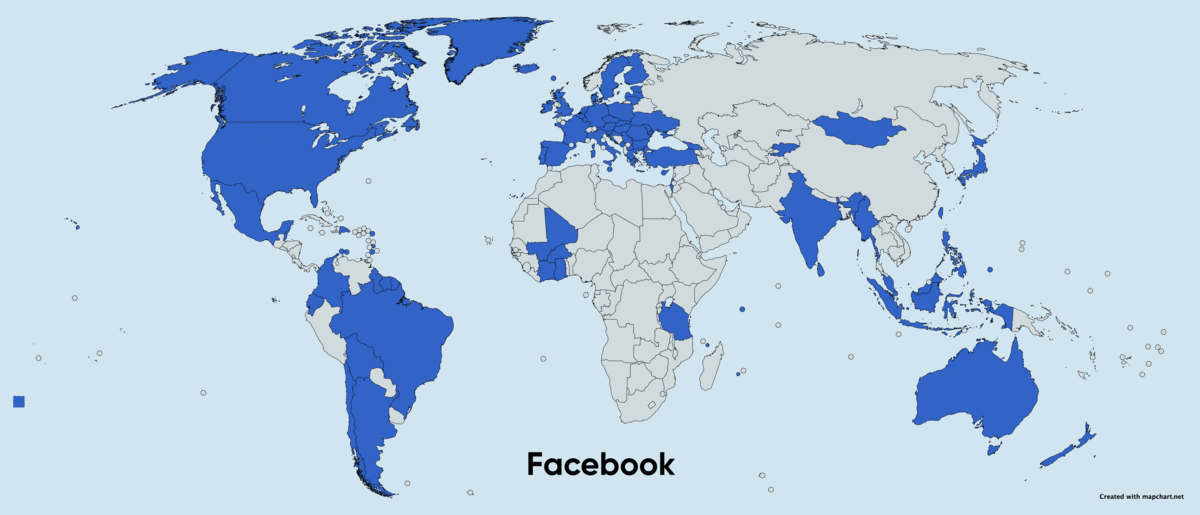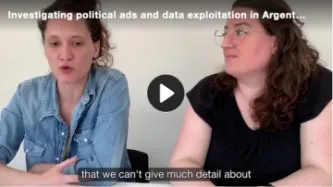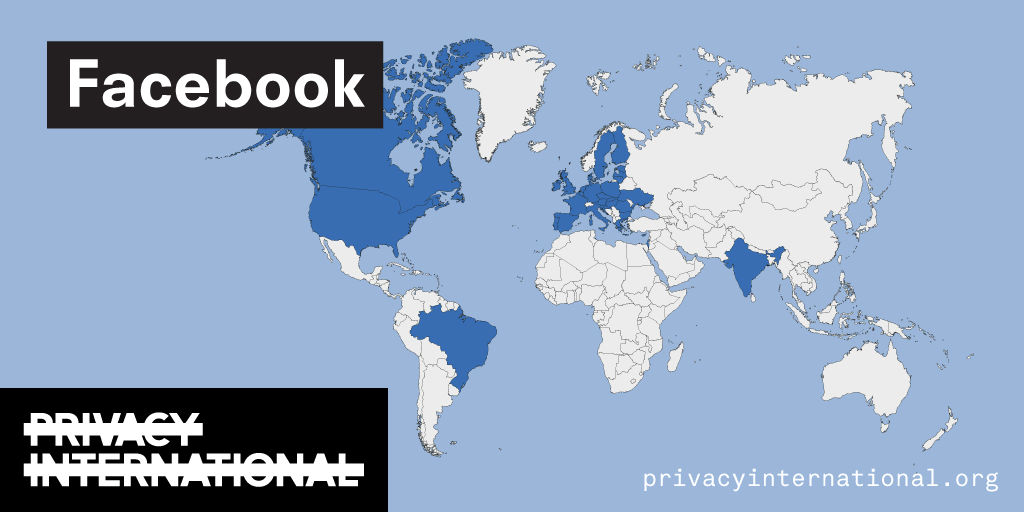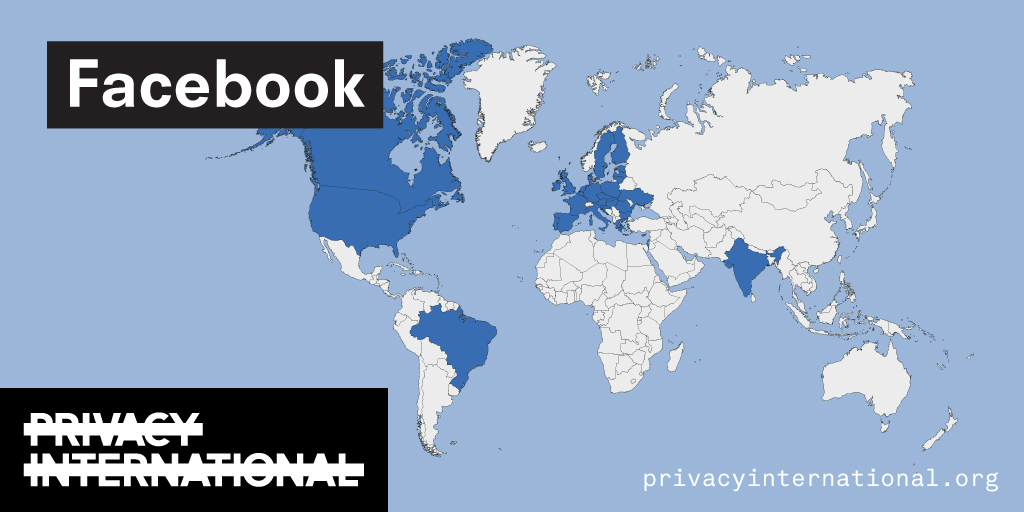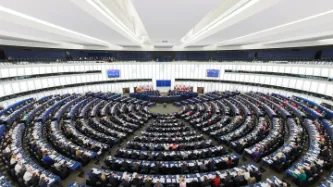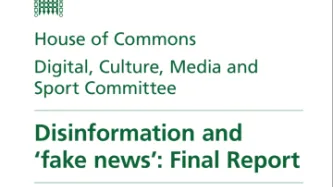Search
Content type: News & Analysis
The report on disinformation by the UN Special Rapporteur on the promotion and protection of the right to freedom of opinion and expression follows a growing trend by international bodies (including the Organization of American States and the European Commission) to assess and regulate the global phenomenon that is disinformation.
The report strongly links the spread of disinformation with the gratuitous data collection and profiling techniques utilised by the online…
Content type: Advocacy
Esta carta también está disponible en inglés.
Estimados Sres. Zuckerberg y Pichai,
En los últimos años, ustedes han sido pioneros en la creación de importantes herramientas de transparencia para ayudar a los usuarios de su plataforma a entender, conocer y contextualizar la propaganda electoral a las cuales se ven expuestos. Estamos de acuerdo en que los procesos de verificación de anunciantes y los repositorios de anuncios son salvaguardas claves contra la manipulación y la desinformación en…
Content type: Advocacy
This letter is also available in Spanish.
Dear Mr. Zuckerberg and Mr. Pichai,
In the past few years, you have pioneered important transparency tools to help your platform users understand, learn about and contextualise the political advertising they see. We agree that advertiser verification processes and ad repositories are key safeguards against online manipulation and misinformation. However, we are saddened to observe that these benefits have not been equally distributed among your global…
Content type: Video
In recent years, the use of online political campaigning has gained significant traction, with regulatory bodies often struggling to catch up. The unregulated use of political ads can pose threats to transparency, and all the more so when online platforms fail to play their part.
We at PI, together with ELSAM, are investigating the reach, effectiveness and impact of regulation by social media platforms and electoral authorities on online political advertising. Our research has shown…
Content type: Video
Nos últimos anos, o uso de campanhas políticas online ganhou força significativa, com os órgãos reguladores muitas vezes lutando para se atualizar. O uso não regulamentado da propaganda política pode representar ameaças à transparência, ainda mais quando as plataformas online deixam de cumprir a sua parte.
A PI, juntamente com o InternetLab, está investigando o alcance, a eficácia e o impacto da regulamentação por plataformas de mídia social e autoridades eleitorais na…
Content type: Video
In recent years, the use of online political campaigning has gained significant traction, with regulatory bodies often struggling to catch up. The unregulated use of political ads can pose threats to transparency, and all the more so when online platforms fail to play their part.
We at PI, together with InternetLab, are investigating the reach, effectiveness and impact of regulation by social media platforms and electoral authorities on online political advertising. Our research has…
Content type: Long Read
Among the many challenges of 2020, the impact on elections around the world kept us all on the edge of our seats. 75 countries postponed national and local elections due to Covid 19. Of the elections that went ahead, we saw Covid safe measures at polling stations (South Korea led the way forward in April) an increase in postal voting (who can forget the USA, but also Poland) and political parties in Uganda conducting "virtual" campaigns as mass rallies and in person campaign meetings were…
Content type: Press release
Privacy International announces the launch of two reports as part of its work on Defending Democracy and Dissent.
The report Online Political Ads: A study of inequality in transparency standards builds on our 2019 research findings and delves into the adverse impacts of non-existent or limited transparency on democracy based on two case-studies developed by our partners InternetLab and ELSAM.
The report, Micro-Targeting in Political Campaigns,…
Content type: News & Analysis
Over the past years, there has been much attention paid to political advertising transparency on online platforms. Growing internet penetration and the rising popularity of social media have made social media platforms a key battlefield for political actors in the fight for votes, where political ads have proved themselves to be a popular weapon. This means online transparency towards voters has become more imperative than ever.
And yet, social media platforms’ regulation of political ads…
Content type: Video
The incorporation of new technologies to electoral processes is a phenomenon with a global and exponential growth. Despite its benefits, online campaigning is not without challenges, and can pose threats to transparency and equity in electoral competition. Given the role of elections as foundational pillars of the democratic system and a key gateway for the exercise of fundamental civil rights, these implications must be assessed with care and through specific tools.
We at PI, together…
Content type: Case Study
The run up to Kenya’s 2017 elections was extremely tense. Kenya has a history of violently fought elections and there was fear this election would be no different. It was in this tense environment, that companies like Cambridge Analytica and Harris Media – and their digital offerings - got involved in the election campaigns.
Cambridge Analytica’s business model is by now familiar, they compiled a huge amount of data points, often through illegal means, to create profiles on individuals –…
Content type: Advocacy
As we come to the end of 2019, major weaknesses remain with the transparency that all major platforms have so far provided to users. This piece will overview these weaknesses and suggest steps to move forward in 2020.
Tying heightened transparency to "political" ads introduces a variety of problems. For a start, each platform has defined "political" differently, with some having wider definitions and some, incredibly narrow. When an ad is not designated as political, oftentimes it is provided…
Content type: Long Read
An analysis of what Facebook, Google, and Twitter have done to provide users with political ad transparency as of September 2019. Our full analysis is linked below.
Recently the role of social media and search platforms in political campaigning and elections has come under scrutiny. Concerns range from the spread of disinformation, to profiling of users without their knowledge, to micro-targeting of users with tailored messages, to interference by foreign entities, and more. Significant…
Content type: Long Read
We found this image here.
Using Facebook, Google, and Twitter’s ad libraries, PI has tried to understand how political ads are targeted in the UK. This information – which should be very clear on political ads – is instead being squirreled away under multiple clicks and confusing headings.
Importantly, in most countries around the world, users cannot understand why they’re being targeted with political ads on these platforms at all. This is because Facebook, Google, and Twitter have taken…
Content type: Advocacy
On 28 August 2019 PI joined International Privacy Network partner Asociación por los Derechos Civiles and others in writing to the Directors of Public Policy for Latin America at Facebook, Google, and Twitter. The letters outline what steps are needed to make the social media giants' ad archives effective. Earlier this year organisations across Europe, led by the Mozilla, wrote to the companies with similar guidelines - the letters sent today say that equivalent steps should be taken for ad…
Content type: Explainer
Recently the role of social media and search platforms in political campaigning and elections has come under scrutiny. Concerns range from the spread of disinformation, to profiling of users without their knowledge, to micro-targeting of users with tailored messages, to interference by foreign entities, and more. Significant attention has been paid to the transparency of political ads - what are companies doing to provide their users globally with meaningful transparency into how they…
Content type: Examples
In an effort to improve political advertising transparency, Canada drafted a Bill that requires companies to develop ad libraries, to which ads are added immediately in order for researchers, journalists, and other people to be able to search and understand how political actors are targeting ads. In response, Google announced that it would blanket-ban all political ads in Canada, saying the company was unable to comply with the new law. Google’s decision shows both that the current state of…
Content type: Examples
The two leading Presidential candidates in Ukraine's 2019 elections have expressed frustration at major social media platform's seemingly lack of assistance combatting disinformation and bots. Bots flood social media networks and can promote content or flood platforms with pull requests to have a piece of content taken down. Campaigns are unable to directly contact Google, YouTube, and Facebook for assistance directly and waste resources constantly fighting against bot armies.
https://www.…
Content type: Long Read
Image Source: "Voting Key" by CreditDebitPro is licensed under CC BY 2.0
Democratic society is under threat from a range of players exploiting our data in ways which are often hidden and unaccountable. These actors are manifold: traditional political parties (from the whole political spectrum), organisations or individuals pushing particular political agendas, foreign actors aiming at interfering with national democratic processes, and the industries that provide products that …
Content type: News & Analysis
The first half of 2018 saw two major privacy moments: in March, the Facebook/ Cambridge Analytica scandal broke, followed in May by the EU General Data Protection Regulation ("GDPR") taking effect. The Cambridge Analytica scandal, as it has become known, grabbed the attention and outrage of the media, the public, parliamentarians and regulators around the world - demonstrating that yes, people do care about violations of their privacy and abuse of power. This scandal has been one of…
Content type: Examples
According to research conducted by Ronan Chardonneau, a French associate professor of digital marketing at Angers University, none of the websites of the eleven candidates' in the 2017 French presidential elections, that he looked into respected CNIL's directives regarding information that should be available on the website and consent requirements for data collection. According to this research, nine of the candidates used Google Analytics, without activating the option to anonymize data…
Content type: News & Analysis
Photo by DAVID ILIFF. License: CC-BY-SA 3.0
Between 23 and 26 May 2019 Europeans will be voting to elect members of the European Parliament.
Since the last elections in 2014, much has changed within and without the European Union: the rise of nationalism and Euroscepticism, the protracted armed conflict in Ukraine and the occupation of Crimea by Russia, the new political orientation of the United States, just to name a few.
Among the new challenges facing these elections is…
Content type: Long Read
“Truth exists, but you have to find it”, Oleksandra Matviychuk of Ukraine’s Center for Civil Liberties told me as I interviewed her in central Kyiv one week before the 2019 Ukrainian run-off election, “and in order to do so you have to make some effort”. We’re talking about her experience working on the ground in Ukraine, a country with a long history of battling against disinformation.
Activists in Ukraine have long experience navigating the noisy and chaotic environment that disinformation…
Content type: Long Read
This image was found here.
Spain is holding a national general election on April 28 (its third in four years). Four weeks later Spaniards will again go to the polls to vote in the European Parliament elections. At Privacy International we are working to investigate and challenge the exploitation of people’s data in the electoral cycle including in political campaigns. This includes looking at the legal frameworks governing the use of data by political parties and their…
Content type: Examples
A December 2018 report prepared by the Oxford Internet Institute's Computational propaganda Research Project and the network analysis firm Graphika for the US Senate Intelligence Committee found that the campaign conducted by Russia's Internet Research Agency during the 2016 US presidential election used every major social media platform to deliver messages in words, images, and videos to help elect Donald Trump - and stepped up efforts to support him once he assumed office. The report relied…
Content type: Examples
In the run-up to the May 2019 European Parliament elections, Google announced it would launch a new set of transparency tools to combat voter manipulation. Before being allowed to buy advertising on Google platforms, campaigns will be required to verify their identity, and approved ads will be required to display the identity of their purchaser. Google will build a real-time searchable database of all political ads and show their purchasers, costs, and demographics. Facebook announced similar…
Content type: News & Analysis
PI has today written to Google, Instagram, Snapchat, TicTok, Twitter, YouTube, and WhatsApp to ask for more information about their steps to tell people why they are seeing ads. Facebook recently announced expanding the company's ad transparency measures to include more information about why an ad or content appears in a user's newsfeed. While Facebook has a lot more to do, it is important that all technology companies provide advertising transparency.
Recently, we have seen how platforms…
Content type: News & Analysis
Privacy International welcomes the focus on data and privacy contained in the final report by the UK House of Commons Digital, Culture, Media and Sport Committee (DCMS) on Disinformation and ‘fake news’. Beyond our control, companies and political parties have banded together to exploit our data. This report establishes essential steps to remedying this downward spiral. An important part of the democratic process is freedom of expression and right to political participation, including the right…
Content type: Examples
In September 2018, Google warned a selection of US senators and their aides that their Gmail accounts were being targeted by foreign government hackers. Google has issued warnings of phishing attempts by state-sponsored actors since 2012, though getting a notice does not mean the account has been compromised.
https://www.cnet.com/news/google-warns-us-senators-of-foreign-hackers-targeting-their-gmail-accounts/
Writer: Richard Nieva
Publication: CNet
Content type: Examples
A former Facebook insider explains to Wired Magazine why it's almost certain that the Trump campaign's skill using the site's internal advertising infrastructure was more important in the 2016 US presidential election than Russia's troll farm was. The first was the ads auction; the second a little-known product called Custom Audience and its accompanying Lookalike Audiences. Like Google's equivalent, Facebook's auction has advertisers bid with an ad, an ideal user specification, and a bid for…




